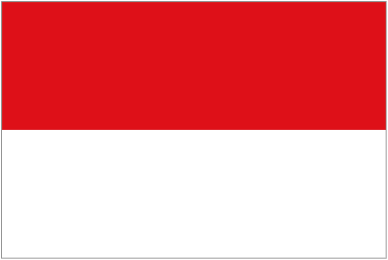August 17

We, the Indonesian people, hereby declare the independence of Indonesia. Matters concerning the transfer of power, etc., will be carried out in a conscientious manner and as speedily as possible.
Jakarta, 17th day of the 8th month, 1945
Soekarno/Hatta
Just two days after Emperor Hirohito announced the surrender of Japan, Indonesia’s first president, Sukarno, proclaimed Indonesia’s independence, in what has to be one of the shortest Declarations of such in the world. (Full text above.)
The Second World War brought tragedy to Indonesia, but it also brought an end to hundreds of years of European colonialism. The Japanese invaded Dutch-controlled Indonesia in 1942, eager to utilize the island colony’s abundant natural resources, such as oil. There was little Holland could do in the matter, being an occupied nation itself. The Germany army had invaded Holland in 1940.

The Japanese fueled the flames of Indonesian independence, and replaced Dutch colonial administrative and economic infrastructure, making self-governance feasible in a way it had not been prior to the occupation. Sukarno’s cooperation with the Japanese during the war earned him the ire of many enemies, but his position was vindicated when Japan announced its intention for Indonesia’s independence in 1944.
The date of independence had not been determined when the Japanese surrendered on August 15, 1945. After the surrender, Sukarno and other pro-Independence leaders wasted no time. They met at the house of Rear-Admiral Maeda Tadashi and scratched out the declaration on the night of August 16.
The Declaration however, did not mean an end to the struggle, but the beginning of a new one. British troops arrived in Indonesia to stave off the revolution until the Dutch–recently liberated themselves–could reassemble their military. By 1947 the Dutch had over 100,000 troops stationed in the area, and the battle was on its way to becoming one of the bloodiest revolutions of the 20th century.
The Dutch emphasized Sukarno’s connection with the Japanese, declaring him an enemy collaborator against the Indonesian people, but it became clear that the fight for independence was not comprised solely of isolated guerrilla groups and political extremists, but was a widespread movement with national support. Also, diplomatic efforts by Indonesian independence leaders increased international support for the nationalist cause
The Netherlands recognized Indonesian independence in November 1949.
Today, Indonesia is the fourth largest nation by population, after China, India, and the United States, and it is the most populous Muslim nation in the world.

how do you know the translation of the youtube video for Indonesian independence? do you have teams to search for these knowledges? your awesome by the way!
Merdeka….